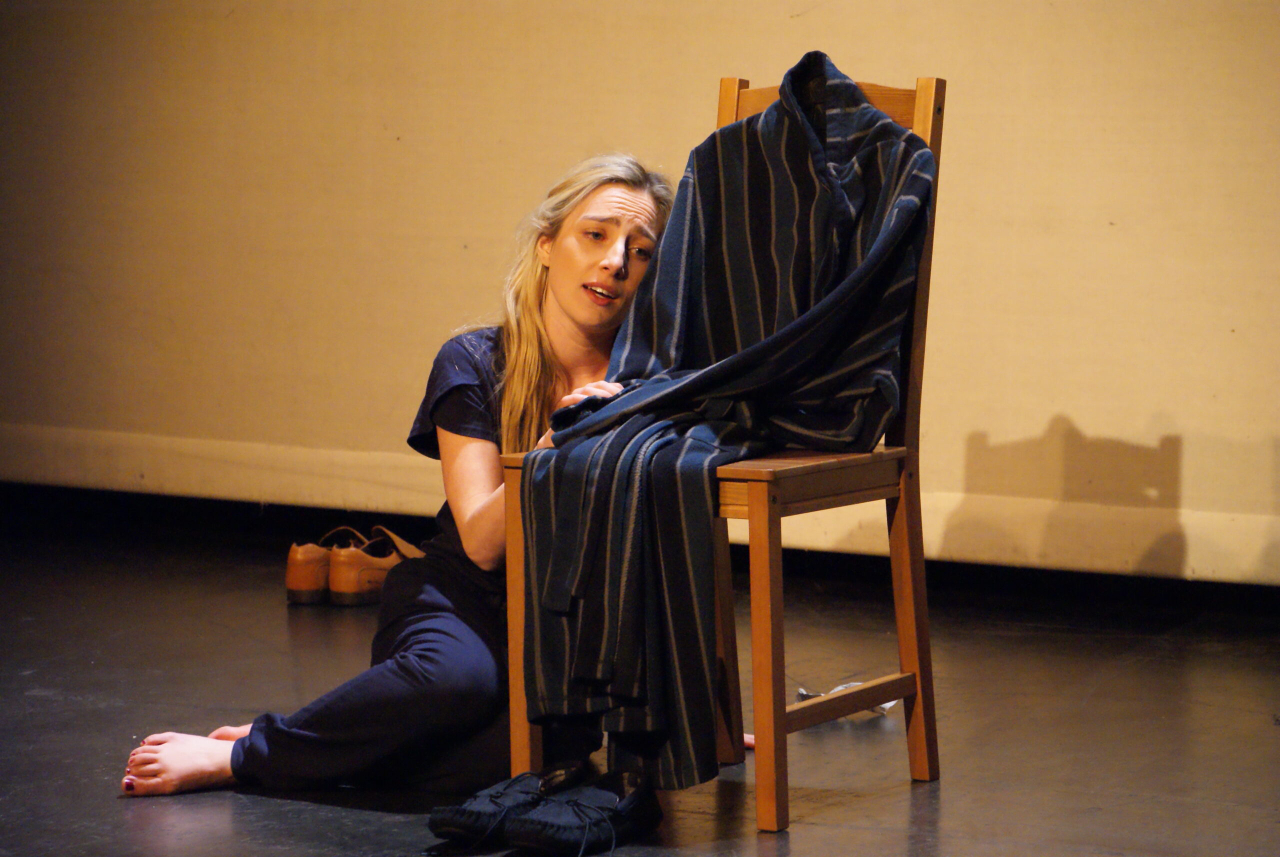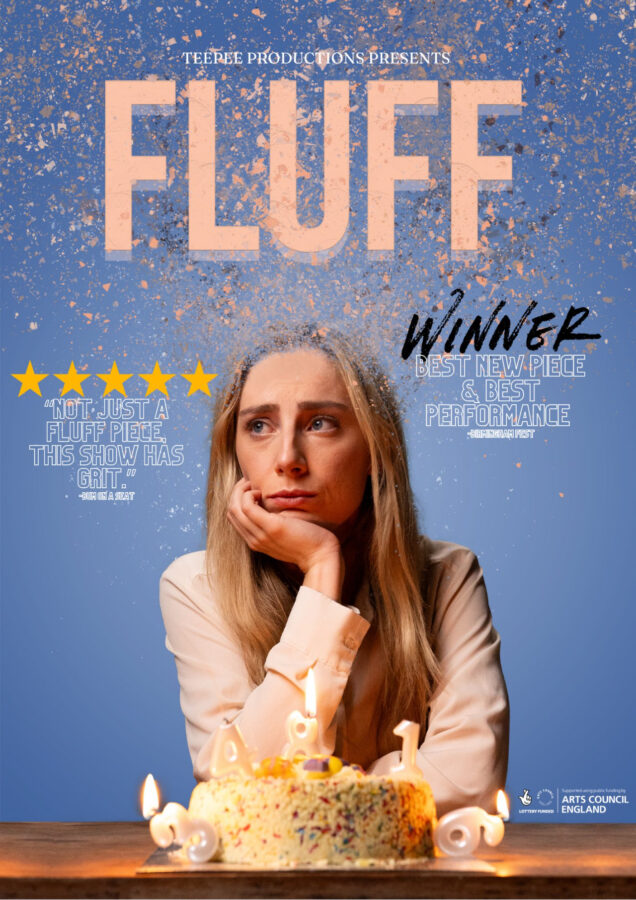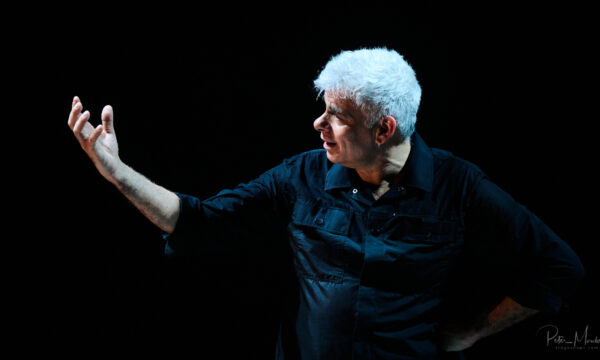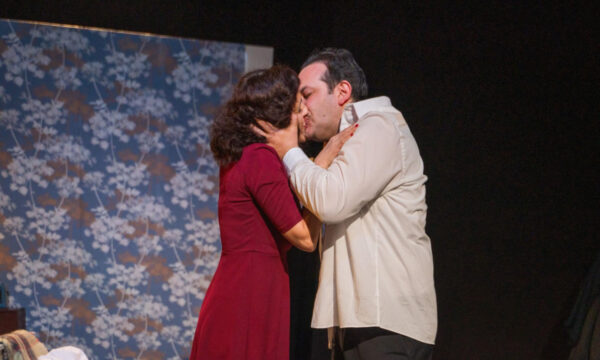Fluff at Theatre 503

Comedy abounds in the heartfelt recollections and re-enactments that make up the story of Fluff’s life. Alone onstage, Tayla Kenyon is compelling from the outset as she regales her audience with anecdotes ranging from the story of how Fluff’s parents met and her childhood to troubled teenage years and a frustrating teaching career.
The play is loosely structured by storytelling chapters identified by important figures in Fluff’s life, including Michael Tilly, her high school crush; her Dad; and Gracie. Fluff’s trips down memory lane are continually interrupted by returns to the central scene of a birthday celebration, signified by a solitary birthday hat, in which Fluff struggles to identify her visitor and to remember whose birthday they are celebrating.
The sparse stage production is well utilised by Kenyon, the single chair onstage seamlessly conjuring a home, a classroom and a doctor’s office as the story demands. Kenyon demonstrates a reflexive physicality throughout her performance, which lends a credible dimension to the various characters she embodies, including her mother, her playground bullies and her high school crush.
Fluff’s nonlinear storytelling is peppered with devastating encounters with alcoholism and dementia, first in each of her parents, then destructively presiding over her own life. One of the play’s strongest moments in both writing and performance is Fluff’s sorrowful recollection of caring for her ailing father following his dementia diagnosis. A shadow of his former self, he no longer knows his daughter, and she feels she no longer knows him; but amidst their most despondent moments, music never failed – however briefly – to bring her father back to himself.
In her retellings, Kenyon’s Fluff relies on stock phrases that she repeats self-consciously, and muddles memories of her own life with stories about her mother’s, talking herself into dead ends and struggling to correct herself before changing the subject – a painfully accurate depiction of the lived reality of those with dementia. With this writer having witnessed these behaviours first-hand in a family member, Kenyon and co-writer James Piercy’s incorporation of these idiosyncrasies demonstrates detailed research into the condition, which notably informs Kenyon’s performance. Sensitive, true-to-life writing of this kind is rare, and to be so authentically embodied in a solo performance, even more so.
Plagued by her inability to piece together her life, Fluff spirals inexorably into a fraught despair. Music fades in, and the restorative relationship between music and memory comes to the fore once more, with Fluff responding to music in the same way her Dad did. The vivacious spirit of her youth resurfaces, smiling and spinning to Cyndi Lauper’s Girls Just Wanna Have Fun; briefly untroubled by the holes in her memory, and the questions from her past that will return to haunt her once the music ends.
Lauren Devine
Photos: Courtesy of Theatre 503
Fluff is at Theatre 503 from 22nd until 23rd July 2024. For further information or to book visit the theatre’s website here.



















Facebook
Twitter
Instagram
YouTube
RSS